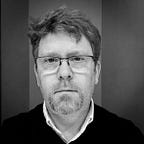Film Review: Fill the Frame by Tim Huynh
Fill the Frame (2021)
62min
Documentary
Released 31 January 2021 (USA)
https://www.filltheframefilm.com/
Fill The Frame, directed and produced by Tim Huynh, follows eight contemporary New York City street photographers. The film takes an in-depth look at the work of the photographers and their journey through personal discussions, and features interviews and scenes of them working on the streets of New York City. The photographers featured are Dimitri Mellos, Jonathan Higbee, Julia Gillard, Lauren Welles, Mathias Wasik, Melissa Breyer, Melissa O’Shaughnessy, & Paul Kessel.
The film also features interviews with notable curators, gallerists, and writers to give both historical and current insights on the street photography genre as well. The vignettes highlighting seminal work by photographers like Levitt, Maier, Eggelston and Winogrand show how they influenced the contemporary scene. These quick history insights provide a foundation for the work of their contemporaries, and leads into the impact social media has made for the meteoric rise in popularity of the street genre.
The pacing of the film feels right for a film about street photography; it starts with a rapid succession of scenes showing photographers working in the streets, along with the work of biggies like Levitt, Maier, Eggelston, and Winogrand peppered in for reference. After the rapid-fire first twenty minutes of the film, Huynh slows the pace and dips into an interview with Lauren Welles, where she gives us insight into her professional and personal backstory. The discussions with Welles, and Higbee, and Kessel really stood out to me — each gave their personal, often humble, origin story with becoming a photographer, and Huynh just lets them talk about the joy of visually experiencing the world around them, enjoying people and the dynamics of capturing the world within a frame. I really enjoyed learning about these photographer’s backstories and understanding the person behind the camera. I have reviewed work by some of these same photographers in the past, and it was interesting and valuable to hear from them directly about their journey and goals as artists.
The experience of watching this film, shot in pre-pandemic New York City, felt good to watch. If the film had been released in early 2020, it would likely feel premature… Too soon. But now that the nation is on the road to recovery from the past year of illness and deaths from the pandemic, accelerated vaccine development, economic pitfalls, joblessness, and political anxiety — it felt good to get a healthy dose of a socially-interactive creative process. Many photographers whose career and livelihoods were impacted by the pandemic so far, are likely straining at the bit to get back to streets teeming with people. Huynh expertly used a number of techniques to set the stage: slow motion sequences of people walking and interacting in the city, drone or aerial shots pan over rooftops and the streets below, and special attention was paid to esthetics when choosing to present footage in black and white for a photographer who chooses to not shoot in color, then transitioning back into color as she walked away at the end of her segment.
I once wrote of the metaphor of theater as applied to street photography. Whichever street corner, subway station, beachfront, or setting the photographer selects as the tableau, it feels like a magnificent theater with a diverse cast of characters performing in an unscripted play on an ever-changing stage. As individuals interact with one another in these tightly-packed public spaces, occasionally extraordinary situations unfold that are unexpected, mysterious, humorous or poignant. A strange or wonderful juxtaposition may materialize and then vanish in a split-second. Such ephemeral events are often overlooked or quickly forgotten in an oftentimes chaotic world. The resulting images are a visual language of their own; an expression that is an equivalent to the captured scene. The sum is greater than its parts. The craft and attention required to capture this genre of photography should prompt us to pause and reflect on how magical these instances truly are.
View the trailer for Fill the Frame at IMDB or visit the film’s website at: https://www.filltheframefilm.com/
Originally published at F-Stop Magazine.
